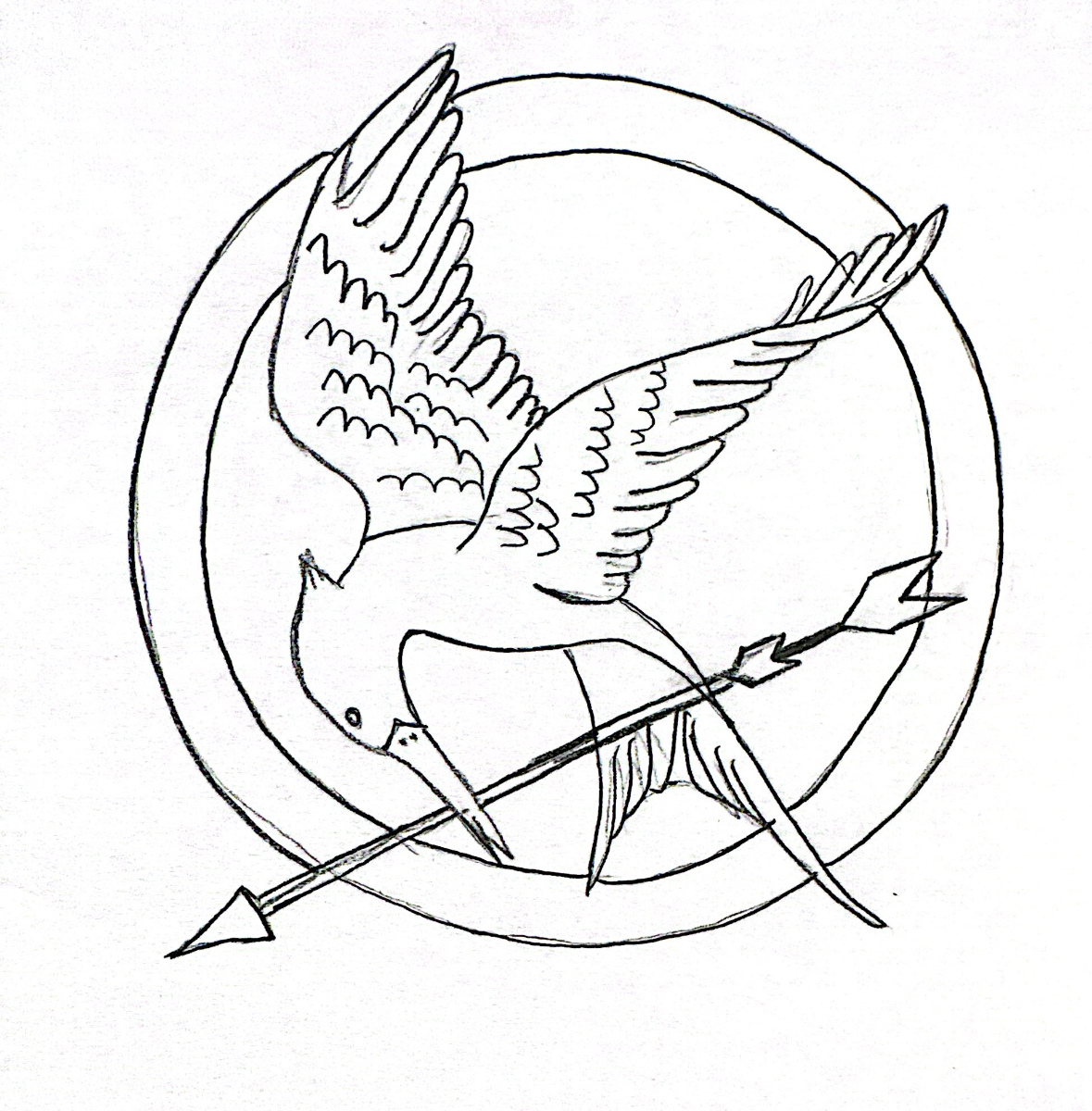Joker: Folie à Deux has just been released and within the first day, the initial reaction to the film has been overwhelmingly negative. Online discourse surrounding the film has suggested that it’s one of the year’s worst movies. It currently sits at a 33% rotten tomato score, meaning that only 33% of the viewers enjoyed it.
Now before I get into this review, I feel the need to emphasize the fact that I am not a super-fan of either Marvel or DC films. This undoubtedly impacted the way that I viewed the Joker films and why I love them so much.
As a fan of the first movie, (I dressed up as Arthur Fleck in 7th grade) I was scared of what could have gone wrong. I generally trust the movie critics and if they were all in consensus that the movie was trash then that’s what I would think too. Right? Well, I went to go form my own opinions. Spoiler alert: I loved it. Maybe a little bit more than the first one. But to understand why that is, we first have to go back and see what made the first movie work with audiences and why Folie à Deux was built to stir negative reactions.
Now let me take you back to 2019, over five years ago I know. Time flies huh. Hollywood was looking quite stale. The top five grossing movies of the year were all sequels or extensions of already established IPs. Endgame, Frozen 2, Spider-Man: Far from Home, Captain Marvel. This seemed like a new peak in the sea of comic book movies, movies that were okay but really seemed to just exist to saturate the market, and cater towards audiences’ wants. 2019 was the year that Martin Scorcese, filmmaking legend, said “Marvel movies aren’t cinema.” This is undeniably a pretentious take, but it holds truth nonetheless. This is the sole reason why Joker (2019) stands out. (Martin Scorcese was a producer on this project which is kind of ironic.) It took a previously established character and asks the question of what would happen if instead of being a supervillain with the insane impulses to create violence, the Joker was a mentally ill man living in a society like ours. No Batman to fight. No “justice” to serve. The film, through its gritty and realistic atmosphere was less focused on creating the origin to the “prince of crime” the Joker was known as and instead told the story of what happens when a lonely man who struggles with his mental well being is pushed over the edge by a “society that abandons [you] and treats [you] like trash.”
Joker impacted people. But I think the message the audience walked away with was misinterpreted, skewed beyond recognition of what the director Todd Phillips intended it to be. Phillips initially wanted the film to stand alone so when Warner Bros inevitably presented him with the opportunity of a sequel following the massive success of the first film, he set out to make a film to set his message straight.
Folie à Deux follows Arthur Fleck two years after the events of Joker. He’s imprisoned in Arkham and awaiting his trial which he finds out early on will decide his fate as he’s being sentenced to death. The themes from the first film are masterfully carried over in new and fresh ways. Arthur’s mental health is at the center of the film and Todd Phillips chose to portray this through these magical and over the top musical sequences that draw a lot of inspiration from 70s talk shows, ballad style music, and La La Land inspired set design. This caught many viewers by surprise and influenced their decision to rate the movie poorly. (They had been saying the film would be a musical since its announcement in 2022 so it wasn’t much of a surprise.) The musical aspect of the film though, I would argue, makes the movie. The sets are beautiful and in the context of the story, the scenes really represent the growing loneliness and insanity that Arthur is feeling. There are many people online who said that it made no sense to make the film a musical, but the first film was heavily music inspired. Arthur Fleck has always been entranced and affected by music. The bathroom dance in the first film is a prime example of this. The soundtrack is also full of bangers. I don’t care what anyone says, Lady Gaga went off.
Folie à Deux presents the audience with Arthur Fleck, not as the all powerful and merciless Joker, but as himself. The thesis of the film is that Fleck was never “The Joker” as we know him to be. Fleck feels remorse for his actions and wishes he never had to commit such heinous crimes. But for the first time in his life, Fleck feels loved. He has an audience and he has people that root for him. This evil persona that Fleck created as a result of being pushed over the edge has become a figurehead for an anarchist movement. This movement is represented through the character of Lee Quinzel, played by Lady Gaga, Todd Phillips’ take on Harley Quinn.
As Arthur goes throughout his trial, he’s being influenced and persuaded by Lee to keep up this act he has going on. He denies his mental health issues and embraces his Joker persona, resulting in love and applause from his followers. But this love is not towards him, Arthur Fleck, it’s for “The Joker.” As the film goes on, Fleck inevitably breaks. He realizes that he needs help and that these people that cheer his name don’t love him. He’s standing on trial, before the death penalty and he has to make a choice of whether or not to embrace his persona and become a hero to these people that cheer his name or to choose to live as Arthur Fleck and reach out for the help that he desperately needs.
This is where the controversy stems from. The film is not action packed, it has no satisfying moments where Arthur can live out his sporadic desires like the ending of the first movie had. It instead is a piece focusing on mental health and begs the question of whether or not we’re doing enough for the people that need help. When people come to see a Joker film, they expect madness, and this reflects a deeper issue that these films bring into light.
Hollywood is obsessed with madness and violence. They capitalize on it. You can see this through the number of serial killer documentaries, and biopics. It’s what the people want to see. And ironically this is where the first Joker film becomes misinterpreted. Instead of viewing Fleck as a mentally ill man who murders six people because of his inability to control his emotions after a life of abuse, many people walked out of the film viewing Arthur Fleck as a hero. They feel as if Fleck was right in his actions and rooted for “The Joker.” These people are no better than Joker’s supporters in Folie à Deux who push Arthur into a further state of madness by placing him on a pedestal and encouraging him to reject what’s left of his rational mind and submit to a life of chaos and crime for the sake of a movement. Todd Phillips wrote this film knowing that he was going against what the majority of the fans of Joker wanted to see. He knew the audience wanted a film exploring Joker’s further descent into chaos and crime, yet this isn’t the story that he felt needed to be told.
There’s enough media out there to fulfill your itch for a traditional Joker story. Check out something like The Dark Knight if that’s what you want to see, but for me, a film like Joker: Folie à Deux is daring and presents audiences with ideas that they might need to see. Not even mentioning its controversial ending that I feel was perfect in driving home its themes. I encourage you all to go and see Folie à Deux and form your own opinions. It’s not fair that a film as masterfully crafted as this is swept under the rug due to overwhelmingly negative reviews and the force of mob mentality.
And hey, even if you don’t like it, you gotta admit Joaquin Phoenix puts on an overwhelmingly better performance than whatever Jared Leto was doing.
Categories:
Joker: Folie à Deux: Disregarding What the Audience Wants to See
Brayden Brumm, Reporter
October 31, 2024
0
More to Discover
About the Contributor

Brayden Brumm, Reporter
Senior Brayden Brumm is a first year Clarion reporter. He has a love for storytelling, being an aspiring future filmmaker. In his free time he enjoys making videos, some of them making it onto his youtube channel. You can find his content @Brayden Brumm on youtube and @brumm.mp4 on IG. He also does photography, always carrying one of his cameras with him.


